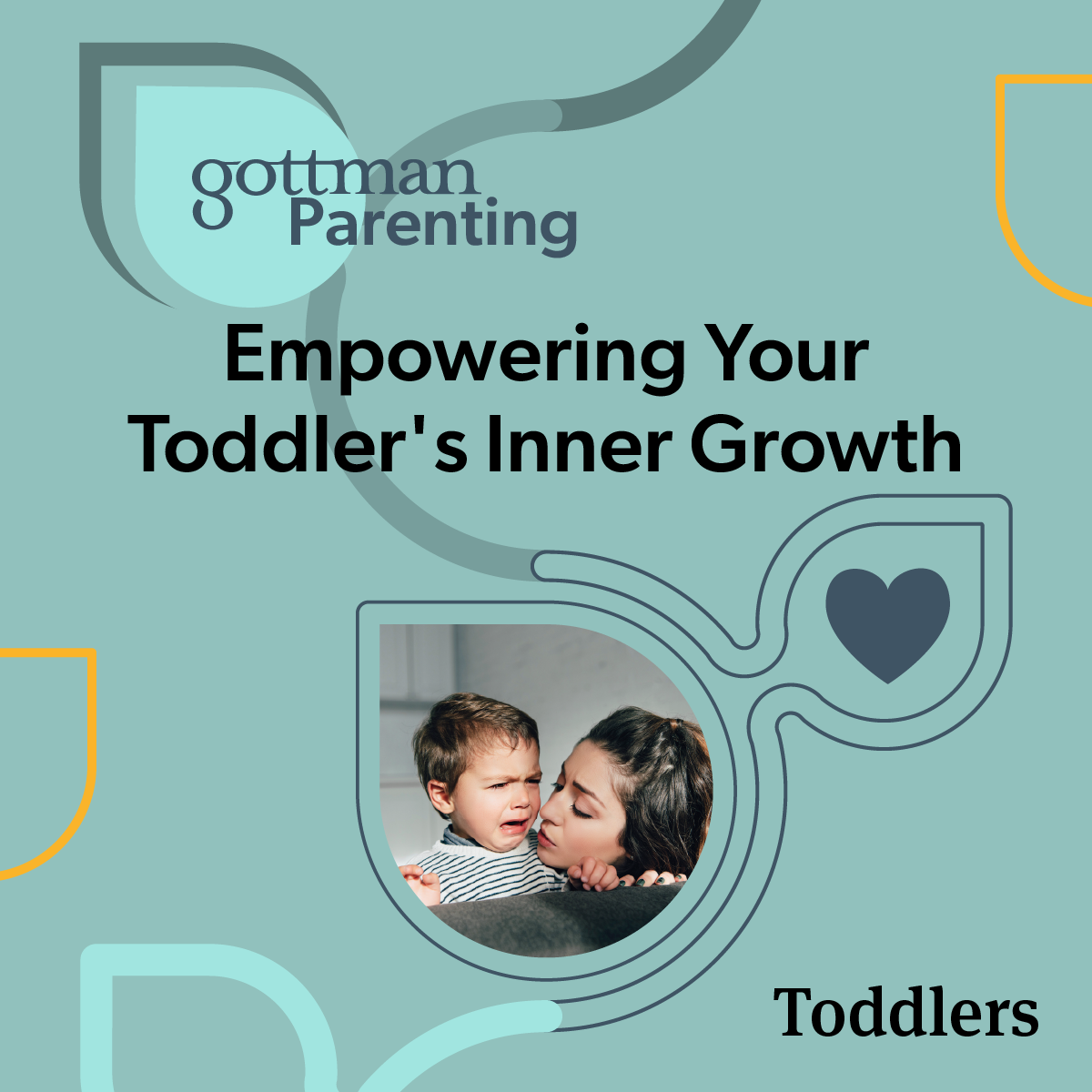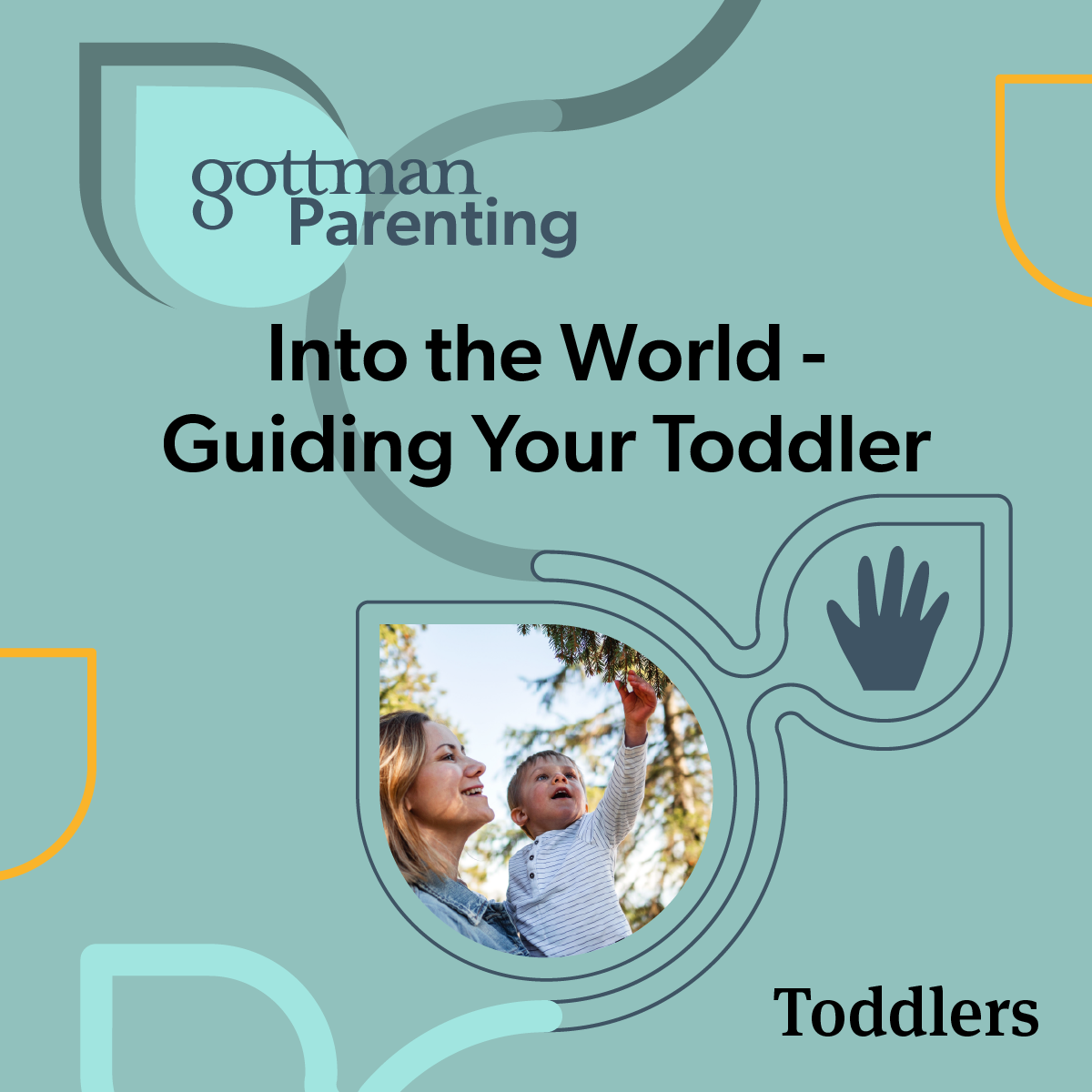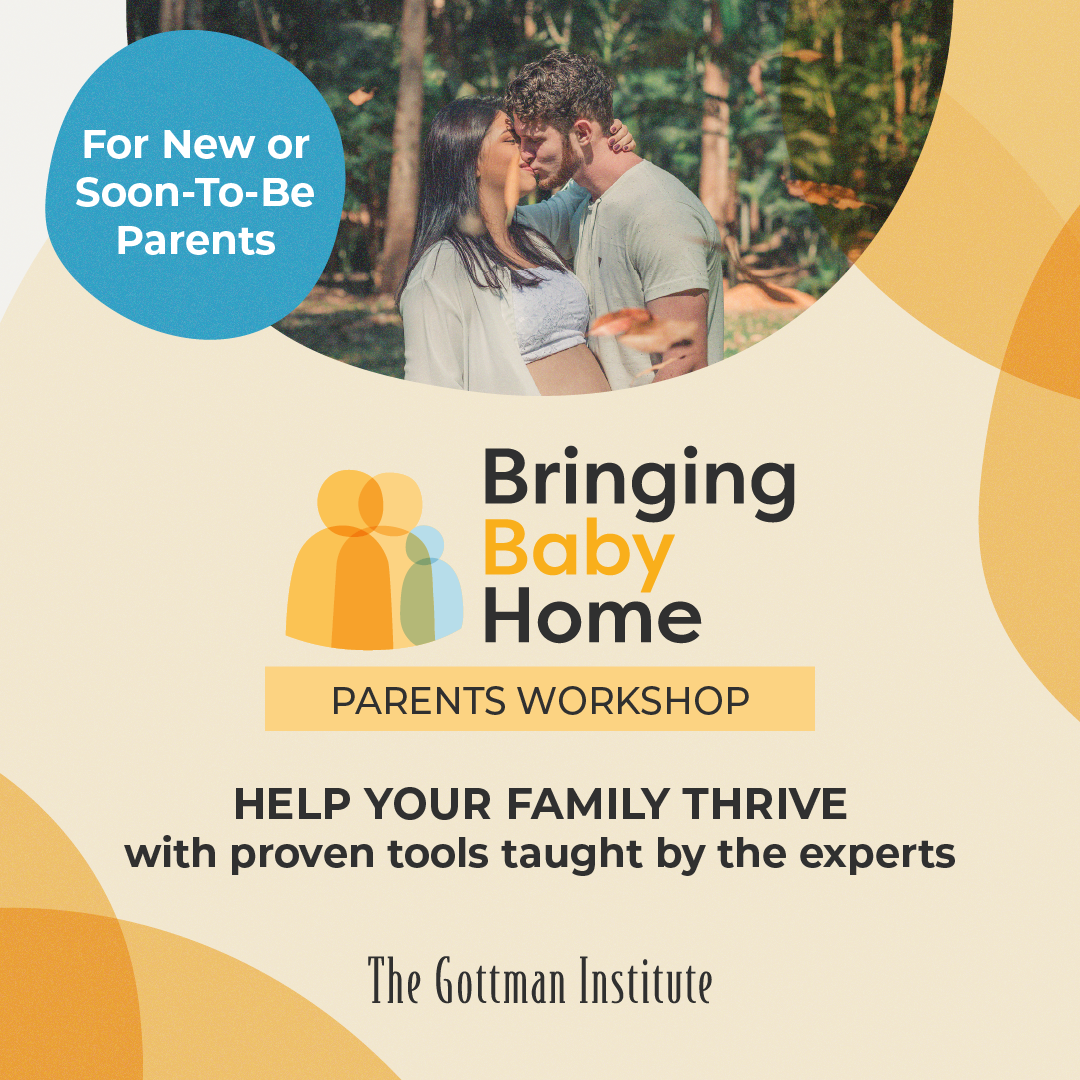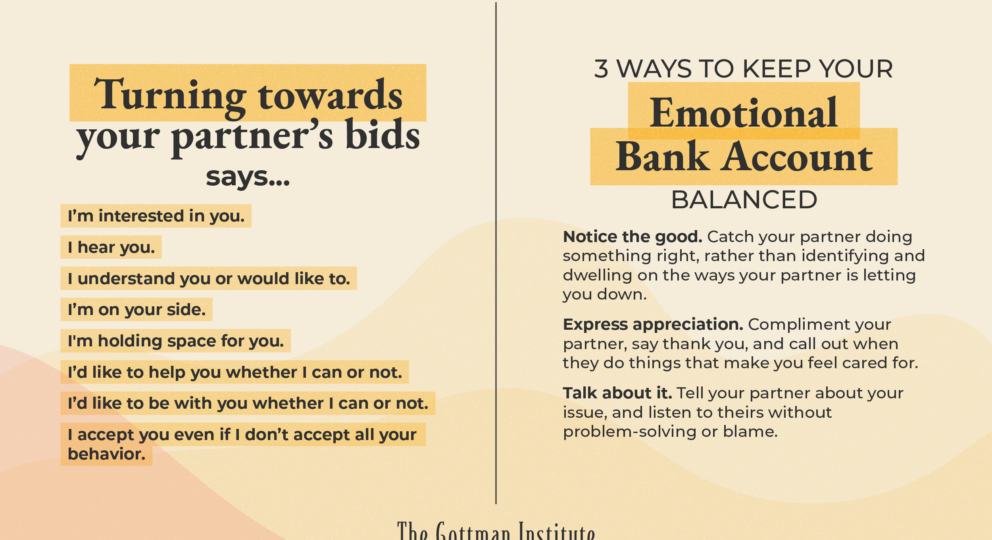To say a new baby changes a relationship is an understatement. Going from two to three (or more if you had multiples) alters the dynamics of how you interact with each other. You now have the joint task of caring for this precious human being who will require much of your time and attention. Especially if one of the parents is nursing, those beginning months require seemingly unlimited energy on very little sleep. It’s easy to look up from the dirty diapers and burp cloths and hardly recognize each other anymore.
Know that it’s normal to spend much of this time in a haze while focusing on your daily tasks. At the same time, you can still make small adjustments in the way you speak to one another that will help support your partnership.
Here are four ways to turn toward each other after having a new baby:
Speak gently to each other
When your partner forgets to empty the diaper bin like they said they would, consider your response. If you jump right into a harsh, “Can you help me out, or do I have to do everything around here?” your partner will feel attacked and likely go on the defensive. However, a softened start to your conversation will ease your partner into your request (e.g., “Honey, when you have a moment, it would help me a lot if you could empty the diaper bin”). Remember that you’re both adjusting to new normals and this is difficult for them too. A gentle approach encourages you both to turn towards each other instead of away or against.
Tell your partner when they do something right
Life with a baby can turn the day into a neverending to-do list as domestic responsibilities accommodate the new addition to your routine. You both could use a pat on the back for everything you’re doing. Be that cheerleader for each other—even if the task seems small. Tell them how much you appreciate when they made dinner the other night. Say thanks for scheduling a payment on that hospital bill. Did they get the baby to sleep after a long day? High five! These fondness and admiration gestures show your partner that you see them.
Listen to their suggestions
The Gottmans call this “accepting influence.” As with any other issue in your relationship, parenting reveals how you both come in with your own unique perspectives. Unwittingly, you can slip into the idea that one of you is “better at this” than the other. This can leave one parent feeling unheard (not to mention the other bearing all the weight of the decision-making). Ease both of your concerns by listening to one another. If your way of soothing the baby isn’t working at that moment, try the method that your partner suggested. Let them advise you on a different technique. When you accept their influence, it’s a reminder to you both that you’re on the same team with a mutual goal. You can do this together.
Take a break when your partner is flooded
As new parents, you’re probably tired in ways you never thought possible, which affects how you communicate with each other. Minor arguments can escalate into major conflict and trigger your “fight-or-flight” mode. This physiological “flooding” means you’ve hit your max in a conversation and it’s best to stop. Knowing the warning signs in yourself (e.g., elevated heart rate, flushed cheeks, etc.) is important, but you also need to know what flooding looks like in your partner. Do they tend to raise their voice? Do their nostrils flare? Do they take steps away from you to create distance? Notice when your partner speaks or moves in a way that says, “I’ve had enough,” and initiate a time-out from the conversation. You both need the break.
The same you, the new normal
Remember that this is still the person with whom you fell in love and that love created this new life. Together you can tackle the joys and challenges of parenthood as a team, so long as you keep turning toward one another.
There’s so much more to keeping your relationship rock solid after a new baby. Check out the new Gottman Parenting: Toddlers programs and Bringing Baby Home for Parents online workshop.
Want research-backed tips on parenting delivered straight to your inbox?
The Gottman Parenting newsletter is a comprehensive, inclusive resource for parents of children in all ages and stages. Join us as we tackle modern parenting challenges, explore the latest parenting research, and more.










